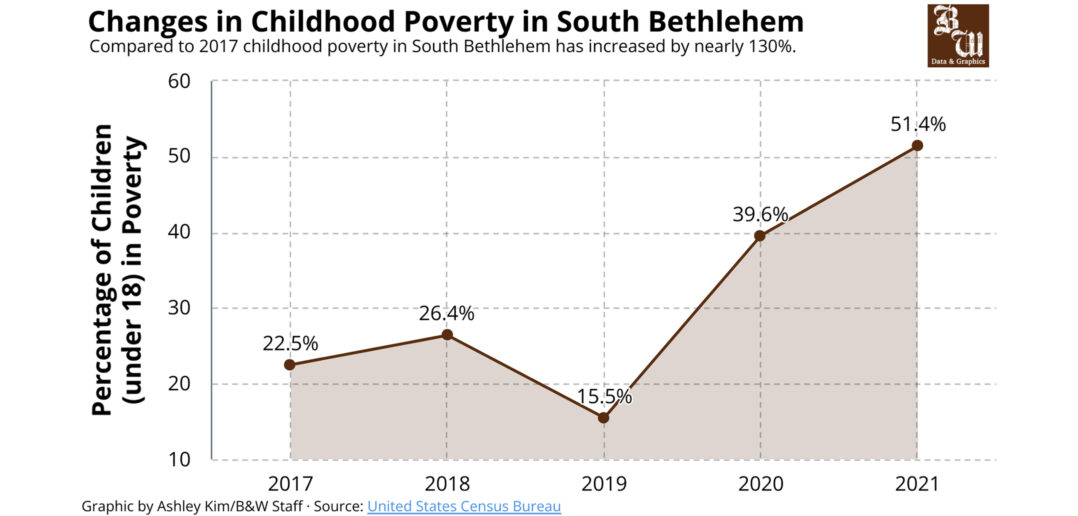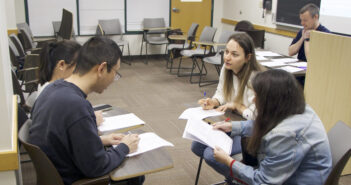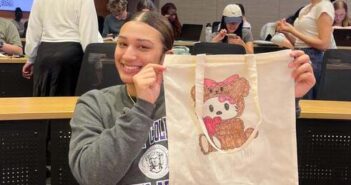Not only has the COVID-19 pandemic affected health, but it has also impacted child poverty rates and the development of students. U.S. News reported 38.6% of students in the Bethlehem Area School District are economically disadvantaged.
A leading effort to combat this issue in the Bethlehem Area School District is part of their Vision and Strategy Plan. The district partners with other community organizations to help students fight against the challenges of poverty.
The strategy helps break the barriers of poverty, particularly surrounding health care insurance, language services, housing support, food security and clothing closets.
John Silva, superintendent of the school district, said the plan is their main approach to fighting poverty in the Bethlehem area.
“We have work to do,” Silva said. “But the biggest academic weapon we have against poverty is literacy.”
COVID was a setback for economically disadvantaged students because, Silva said, they were not in the classroom to get the help they needed.
Because of chronic absenteeism due to the pandemic, administration knew if students were not in the classroom surrounded by support services, they would not be able to be in a learning environment or avoid poverty generally.
Silva said the Bethlehem Area School District was recognized by Gov. Josh Shapiro’s office for their efforts toward ending poverty in the area.
Karen Pooley, political science professor and former research associate at the Institute for Children & Poverty & Homelessness, said the school system provides some students with medical care, but not everyone has it.
“We need to connect with dentists and doctors so we can get more physical and mental health care into our buildings for students who may come with greater needs,” Pooley said. “We also have to figure out how to get more food support, clothing donation centers and more general support inside schools.”
She said the school district is regional, pulling students from a wide variety of places, which creates economically diverse schools. Pennsylvania has one of the largest gaps in spending between wealthy and poor school districts, which Pooley said means those with the greatest economic need have the fewest resources to put toward students’ needs.
Economics professor Ahmed Rahman said not only the people below the poverty line are distressed, but those just above it do not have access to the government resources that will grant them the support they need.
“You can (make) more money and end up being worse off because of these programs,” Rahman said. “Those just above the line receive nothing, yet surely they struggle as well.”
He said during the pandemic, some families were able to put their children into private schools, and according to the CATO Institute, private schools saw a 55% increase between the 2021-2022 and the 2022-2023 school years. Almost half of the respondents reported they received more applications than they had seats available in their classrooms.
Due to the sharp increase, Rahman said public schools cannot provide the same amount of care to impoverished students because the environment is no longer suitable for their situation.
Rahman said this left public schools in a cycle of poverty and economic hardship because it reduced the amount of funding and support they received.
Balanced, diverse students — from all socioeconomic backgrounds — are what Rahman considers to be an essential part of public schools, but shocks like the pandemic pushing students to private schools can disallow this from happening. He said this points to a big vulnerability for public schools when the next crisis hits.
“If anything, this (can be) a setback for families, a setback for people who are economically struggling, who have kids and are trying to get them through the school process,” Rahman said.
With requisite support, Silva said students have the opportunities they need to succeed in and out of school, but without, “there is a steeper hill to climb.”






Comment policy
Comments posted to The Brown and White website are reviewed by a moderator before being approved. Incendiary speech or harassing language, including comments targeted at individuals, may be deemed unacceptable and not published. Spam and other soliciting will also be declined.
The Brown and White also reserves the right to not publish entirely anonymous comments.